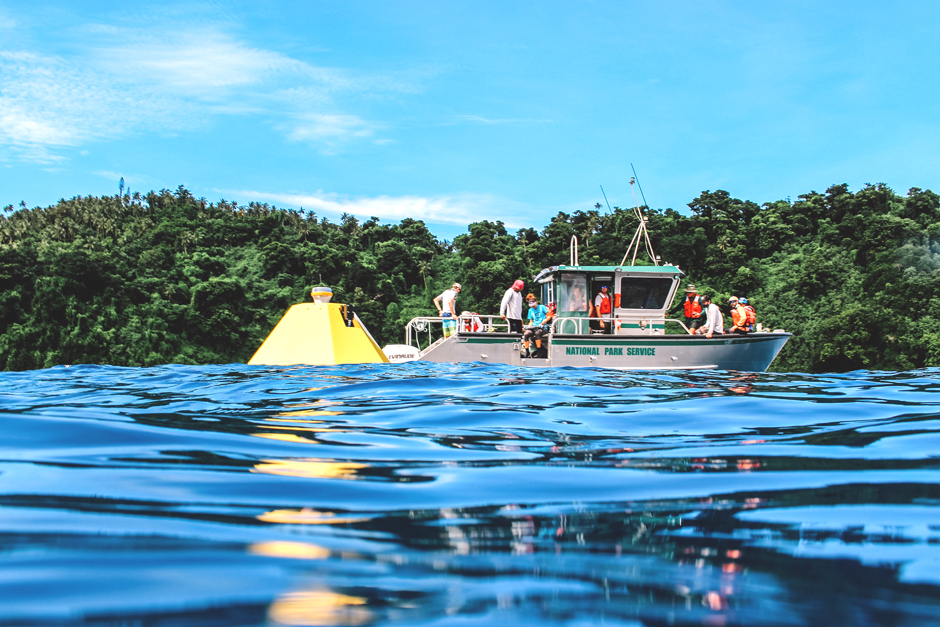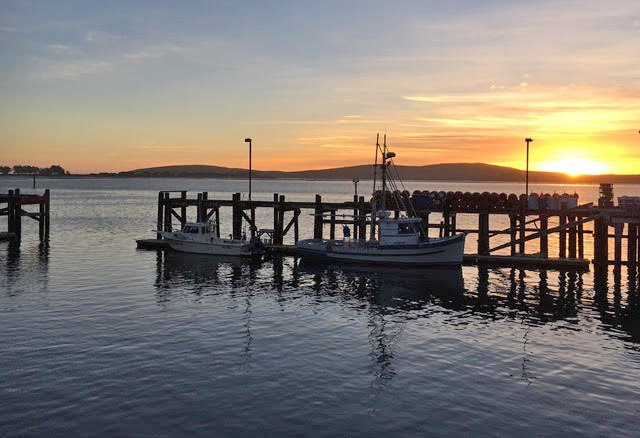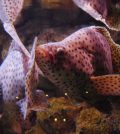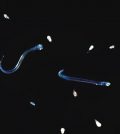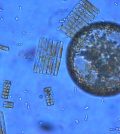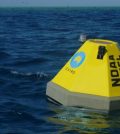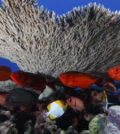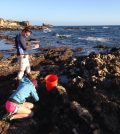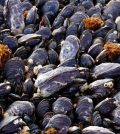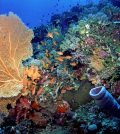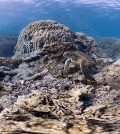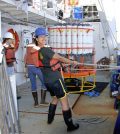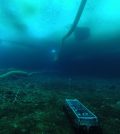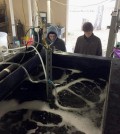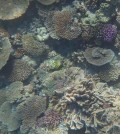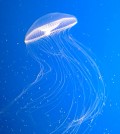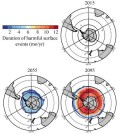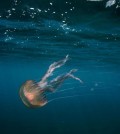Posts for tag "ocean acidification"
New Monitoring Site for Ocean Acidification in American Samoa
A second ocean acidification monitoring site in Fagatele Bay, American Samoa, was deployed this year by NOAA.
- Posted September 17, 2019
The UC Davis Bodega Marine Lab: Ocean Acidification Research at Its Finest
Ocean Acidification researchers at UC Davis’ Bodega Marine Lab are learning more about how carbon uptake by the ocean is affecting marine creatures.
- Posted May 22, 2019
CO2 Cacophony in Acidified Oceans Will Confuse Baby Fish
Research shows that ocean acidification causes confusion in baby fish, making them ignore the sounds of safe habitats and attracted to other noise.
- Posted June 11, 2018
Acidification May Ease Struggle to Survive for Herring Larvae
New research has revealed that herring larvae seem to benefit from limited rises in CO2 levels in water that cause zooplankton to thrive, offering more food.
- Posted April 24, 2018
Ocean Acidification Disrupting Marine Food Webs
Using synthetic biology, researchers have identified a key biological mechanism in phytoplankton that is disrupted by ocean acidification.
- Posted April 11, 2018
BOB and MARI Will Monitor Water Chemistry in the San Francisco Bay
BOB and MARI are a buoy and marine mooring system equipped with sensors for monitoring CO2 and other measures of acidification in the San Francisco Bay.
- Posted March 15, 2018
Coral Skeletal Density Threatened by Ocean Acidification
Researchers reveal a model showing how ocean acidification affects corals’ ability to thicken, leaving them vulnerable and more breakable.
- Posted February 27, 2018
Marine Vegetation Could Serve as a Buffer Against Increasingly Acidic Oceans
Research on tide pools on the west coast reveals that marine vegetation may act as a buffer against increasing acidity of ocean water, protecting shellfish.
- Posted February 26, 2018
How Mussels Cope with Ocean Acidification Sheds Light on Effects of Climate Change
Researchers have observed a rapid shift in how California mussels are structuring their shells—a change that is linked to climate change.
- Posted February 22, 2018
Marine Food Webs At Risk Thanks to Climate Change
New research indicates that the acidification and warmer temperatures caused by climate change negatively impact marine food webs and biodiversity.
- Posted February 13, 2018
Few Coral Reef Ecosystems Likely To Escape Rising Seas, Temperatures
A study led in part by researchers at Duke University maps potential losses to coral reef ecosystems with predicted sea level and temperature rises.
- Posted November 14, 2016
Northeast Pacific Acidification From Anthropogenic Carbon Calculated
Scientists led by the Massachusetts Institute of Technology have measured the acidification owed to anthropogenic carbon in the northeast Pacific Ocean.
- Posted October 12, 2016
Acidification: Antarctic Free Ocean Carbon Enrichment Experiment
The Antarctic Free Ocean Carbon Enrichment experiment used massive underwater tubes, chambers and a sea ice buoy to study ocean acidification.
- Posted August 15, 2016
California Mussels Need Abundant Food To Fight Acidification
A study of California mussels finds that food availability is an important factor in their future ability to weather ocean acidification.
- Posted June 7, 2016
Bubbling Technique May Help Combat Ocean Acidification
Researchers find a bubbling technique works well at removing CO2 from seawater. The method might help mitigate effects of ocean acidification.
- Posted April 5, 2016
Coral Reef Growth Slowing Due To Ocean Acidification
Waters near University of Sydney’s One Tree Island Research Station make up a unique coral reef environment, which at low tide consists essentially of a ponded lagoon surrounded by coral. Because of its enclosed shape, researchers were...
- Posted March 2, 2016
Climate Change: Phytoplankton Numbers Up, Diatom Numbers Down
Thriving in nutrient-poor surface ocean water, coccolithophores are the dominant phytoplankton in areas where others typically starve. It was believed that, as global warming continues, coccolithophores would stop thriving. Ocean acidification and increased carbon were supposed to...
- Posted January 21, 2016
Volunteers Can Track Jellyfish Through Citizen Science Website
A lot of scientific theories hold that a warming ocean has increased jellyfish blooms around the world. But more observations are needed to confirm whether or not that is actually the case. These observations typically require renting...
- Posted December 10, 2015
Models Predict Acidification Risks For Southern Ocean Lifeforms
Researchers at the University of Hawaii and University of Alaska have found that increasing atmospheric carbon dioxide concentrations are likely to drastically change the chemistry of the Southern Ocean, according to a release. The changes will be...
- Posted December 1, 2015
Some Invasive Species Benefit From Increased Ocean Acidification
Climate change, including higher carbon dioxide levels and ocean acidification that comes with it, creates winners and losers in the global marine ecosystem, according to a University of Plymouth release. Japanese kelp, stinging jellyfish and “killer” algae...
- Posted November 17, 2015


